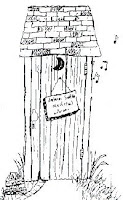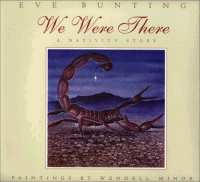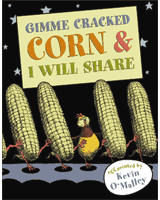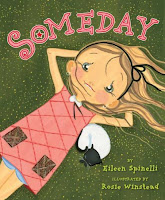 Joseph "Silly" Sottile (pronounced So-tilly) is a former Rochester, NY teacher and long-time poet and children's author. He loves writing poetry for children and essays for adults. He has been published in the Chicken Soup series, Rejection Lessons, The English Journal, Once Upon a Time, and other magazines. He enjoys kids, words, and pictures. The highlight of his day is to visit classrooms and read poetry. He says, "Poetry is music to the sole — no matter what the foot size." Joe loves doing poetry performances, writing workshops, biking, and golfing.
Joseph "Silly" Sottile (pronounced So-tilly) is a former Rochester, NY teacher and long-time poet and children's author. He loves writing poetry for children and essays for adults. He has been published in the Chicken Soup series, Rejection Lessons, The English Journal, Once Upon a Time, and other magazines. He enjoys kids, words, and pictures. The highlight of his day is to visit classrooms and read poetry. He says, "Poetry is music to the sole — no matter what the foot size." Joe loves doing poetry performances, writing workshops, biking, and golfing.
Visit Joe's website to find out more about Joe's books, articles about poetry, kids, education, and information about his school and library presentations. There's 'Silly Stuff' for kids which contains a monthly poetry contest for kids, a section for parents, and a section for teachers. You can also read FREE excerpts from his poetry books.
Visit Joe's blog to read about poetry, prose, publishing, children's books, writing, teaching, and the writer's life.
Joe's books include: Waiting to See the Principal and Other Poems
Waiting to See the Principal and Other Poems
This is a collection of almost 70 funny poems and illustrations about kids, school, home, teachers, sports, and wild things. The poetry and illustrations have a Shel Silverstein quality, according to many reviewers and readers. The poems are done in free verse, some are long and some are short. Many poems are funny, and some are serious. The drawings are done in black and white. The poetry in the book is geared to capture the hearts of kids in grades 1-7. Picture Poetry on Parade
Picture Poetry on Parade
More than fifty poems are marching your way about kids that are in charge of the school; a father that grows money; a coupon-cutting mom; a long-lasting Teddy Bear; a greedy boy; an out of control pencil sharpener; a lunchroom where anything can happen, and numbers that don't add up. There are kings without castles; kids that act like lawyers; bugs that can talk; homework that isn't done; wishes that might come true, and more.
TELL US A LITTLE ABOUT YOUR PATH TO PUBLICATION.
Publication is a journey, just like life. It takes you to faraway places of the mind and you do things that you never dreamed of doing. I never dreamed that I would enjoy being in front of hundreds of children reading my own poems, that I would help create three children's poetry books, that the Internet would become so important to networking in the publishing world, that a refrigerator magnet shaped like a toilet would become a priceless symbol of who I am and where I came from as a poet, and not to mention, that I think poetry can save lives.
WHEN DID YOU FIRST BECOME INTERESTED IN WRITING?
In elementary school I had problems reading. If there were two bird groups for readers, then I was in the Vulture group sitting across from the Robins. During the 50s, when I moved from Queens to Lindenhurst, Long Island as a 4th grader, I was already more than a year behind in reading and math.
WHEN AND HOW DID YOU DISCOVER THE MAGIC OF READING?
Our home did not have many books in it. Almost all the authors that I have read say that they grew up next to or in the public library surrounded by books, or their parents were writers. What great luck for them! The best thing that happened to me, as a reader, is that I read J.D. Salinger's Catcher in the Rye at the perfect age of 16. I couldn't believe how honest Salinger was and how well he knew the insides of a teenager's mind and heart. From that point, I became a reader searching for more authentic writers.
WHAT WRITER DID YOU THINK WAS THE BEST AND WHY?
As a teacher, I thought that Judy Blume was the best for prose and Shel Silverstein the best for poetry. Each year, I read volumes of their work to my fourth or third graders. As a result, they loved Judy, Shel, and reading for pleasure. Before long, I was writing poems and sharing them with my students. I wrote the kinds of poems that I wish were already written for kids and teachers. . .poems about the first day of school, what raising your hand tells teachers, what really goes on in the cafeteria, how schools could be made better, what causes writer's block, why some teachers are favorites, and how to deal with noisy classroom pencil sharpeners. I wrote poems because the first copy could be done in one sitting. Later, they would be polished into gems.
WHEN DID YOU THINK ABOUT PUBLISHING YOUR WORK?
Part of me wanted to be the next Joey Blume. That is, becoming the male version of Judy's seemed like a wonderful dream. And that is what it was: a dream. There were three major roadblocks. I loved teaching, my family, and I didn't understand the publishing world. I frequently spent 9-10 hours at school and then worked on lesson plans or correcting papers for 2-3 hours. I was very active in the lives of my two daughters. We went places together, especially the public library, and had fun together as a family. It was time well spent. As for getting published, in the 70s, I wrote the manuscript for Good Grief! A Man Teacher! on yellow legal paper and the school secretary typed it off for me. Of course, I knew it was a bestseller, but Viking Press didn't agree. They had a note page full of suggestions for improvement, and they didn't want to see it again. They asked me to send something else that I had written. I had nothing else, and computers weren't popular, yet. I would have to start from scratch to write my novel again. I felt crushed by the rejection note instead of inspired to keep trying.
Later in the 80s, I did try my hand at publishing some educational essays. I was thrilled to get published three times in Learning Magazine. I felt that sharing what I knew about education in a popular format was a form of giving back. I found it very satisfying. When I met Dr. David Booth, a Whole Language guru and children's book lover in Toronto, he said that he had read and enjoyed my essays. That was exciting! I wondered if kids beyond my classroom would enjoy my poetry.
Over the years, a large number of kids in my classes suggested that I publish them. The art teacher in my school, Lori Aman, was fantastic at drawing cartoons, so I asked her to illustrate Bathroom Vacation and Other Poems. She performed magic with the illustrations. I was so pleased! And I published the book myself in 1998 through Monroe Graphics. I sold almost 400 copies that first year at festivals and craft shows. Many readers were comparing the book with Shel Silverstein's books! I was happy with the book and illustrations. Life was good, and I was still busy, busy as a teacher.
Then, I started doing things that all writers should do, if they are serious about writing. I joined RACWI, SCBWI, and Writers & Books. I attended writing workshops and conferences as far as my native land, New York City. And I used the Internet to keep up with the world of writing as it unfolds.
HOW HAS THE INTERNET HELPED YOU THE MOST?
Finding the services of www.booklocker.com was a joy! I submitted some poems and illustrations to Angela Hoy and she loved the poetry and pictures, so my first official POD book was born in 2004: Picture Poetry on Parade! Angela told me that she accepts less than 3% of the books that she receives, so, obviously, she is striving to create quality books with her company. I may be slightly bias, but I think she does exactly that.
WHAT ARE SOME OF THE DRAWBACKS TO POD PUBLISHING?
I published my next book with Angela and Richard Hoy, "Waiting to See the Principal and Other Poems" in 2007, so that is one major indication that I really like what they do. It is extremely difficult to find traditional publishers of poetry, especially children's publishers. Every time a book is published by a traditional publisher it is a huge gamble of thousands of dollars. Will the book sell or not? I think many publishers are scared of all the empty white space on the pages left by poems. They would rather see more words on a page instead of less words. A full page of words makes them feel secure. What I like best about POD publishing is that I do not have to worry about my book going out of print. What I don't like is that I cannot price my own book, and I wish that it was on the shelves in the big book stores. But thanks to Booklocker, I am living the life of a writer. And I have Angela and Richard to thank for that. They even helped me along the way for no extra charge.
DO YOU MISS BEING A TEACHER? WHY OR WHY NOT?
In some ways I have not stopped being a teacher, although I retired in 2000. After 2000, I started tutoring sick children and suspended students for my district. Eventually, I wound up at the high school in the after school program. If there wasn't enough work for them, I would use my website, www.joe-sottile.com, to inspire my students to write poetry. I also became a poetry enrichment instructor for Genesee Valley BOCES program where I teach two classes of poetry for ten weeks in certain schools. Sometimes, when I ride past schools on a cloudy day, I get a little misty and wish that I was inside teaching literature or creative writing, but I still get into schools with my poetry performances. On sunny days I enjoy the life of a golfer or biker.
TELL US MORE ABOUT YOUR POETRY PERFORMANCES.
I love performing poetry for classes or schools. When you have 300-400 kids in the audience, it is so exciting to hear them laugh and enjoy the power and music of words. I have had young kids run up to me after a performance and hug me as if I were a rock star! I am sure that they identify with my propeller hat, vest, and silly buttons. They look at me and they say, "This guy is a character! I am going to like this show!" And then I give them a Show of Poetry that connects with them as kids. My poems empower them to share feelings about school and themselves, particularly after I visit them. At least that is what teachers have told me.
HOW DID YOU BECOME KNOWN AS "SILLY" SOTTILE?
I got called "Silly" a lot in school because if you say it right, it rhymes, Silly So-till-ee. And I was left-handed living in a right-handed world, so sometimes I appeared awkward. Not to mention my feet, which point out like duck feet. As a student and teacher, my feet constantly caught the legs of desks and chairs, while walking along in crowded classrooms. One either becomes terminally ill due to hyper-embarrassment or you develop a good sense of humor. I survived by never taking myself too seriously.
Then, I learned kids remember things better if they are funny or rhyme. So I decided to call myself "Silly" Sottile. That way, kids never forget who I am and how to find my books. I tell them, "Just google my name and you will be amazed what you find out about me."
I BET THIS IS THE PART WHERE YOU TELL US ABOUT THE TOILET MAGNET.
Right you are! Once I had a student make me promise that I would not get mad if he told me something. I agreed, and I was told, "If you unscramble SOTTILE, it spells TOILETS." That was interesting news to me. Now I had a way for kids to never forget how to spell my last name. And my father was a plumber most of his life.
Now when I go to schools, I tell the kids that they need to have a dream in life that makes the world better and themselves better. As a plumber, my father made the world better and achieved his dream: to have enough money to send his four kids to college [or higher education], which he did. I tell them that the toy toilet stands for my father's dream and the good that he did for others. After all, "We all need toilets." Then they roar with laughter. Of course, my toilet also makes flushing sounds. If they learn anything from me, they learn that words and sounds have power.
TELL US ABOUT YOUR POETRY WEBSITE.
I think that I will let a reviewer tell you about it. Here is what Rayne of the former 'www.SoManyStories.com' wrote about it, "Joe is a retired teacher and a professional writer and poet. His enthusiasm and love for poetry and his sheer enjoyment at sharing this love with children (and adults) really shines through. His site has fun and clever ways to introduce and encourage kids to try their hand at writing their own poetry as well as reading poetry. The site is full of suggestions, help, examples and so much more for teachers and parents as well as students. Best of all there are a whole lot of photos."
WHAT ADVICE DO YOU HAVE FOR OUR READERS?
In the e-book, "I Wish Someone Had told Me That," 64 Successful Children's Authors Give You Advice That They Wish Someone Had Given Them. I wrote, "The best advice I ever got was follow your dream." This is common wisdom in the world of literature. Maybe it should have said, "Follow your dream wherever it takes you, and enjoy the journey." When I was 5, a slow moving car ran over me on 142nd street in Queens. Although struck down and bloody, I had no broken bones or permanent injuries. In the ambulance, I kept on asking dad, "Am I going to die?" When I didn't die, the idea of giving back to others started to germinate in my mind.
I have a monthly poetry contest that any school-age child may enter. In a small way, I am giving back. This is a chance for a child to see their work published online. This coming month, you will see the work of Manika Jain, thanks to the Internet, who lives in India.
I once had a teacher tell me that one of my postings might have saved a student's life. The student had a tough life and was going through a tough time. Being declared a "winning poet" rescued her from severe depression. We only need one person to believe in us or say the right thing at the right moment. Our lives and writings are like pebbles thrown into a big pond. We definitely do not know where the ripples end.
My best writing advice is to read, write, leave it alone, and revise. It can't be said enough times. Read, write, leave it alone, revise and treat yourself to a copy of "Waiting to See the Principal and Other Poems."
Thank you very much for this interview, Lori Calabrese.
Viewing: Blog Posts Tagged with: prose as narrative, Most Recent at Top [Help]
Results 1 - 3 of 3
Blog: Lori Calabrese Writes! (Login to Add to MyJacketFlap)
JacketFlap tags: Author Interviews, Joseph Sottile, Add a tag
Blog: Not Just for Kids (Login to Add to MyJacketFlap)
JacketFlap tags: picture books, Book of the Week, wordless picture books, prose as narrative, Christmas books, Add a tag

Christmas is here, and I present to you one of my favorite Christmas picture books. It's fairly recent, and I think it has probably flown under many radars. But that's okay, because that fits the message of the book. It's Eve Bunting's We Were There, and it tells the Nativity story from the point of view of the lowliest, ugliest, creatures of the dark--the scorpion, the snake, the bat, the toad, the spider, and (my personal favorite) the rat. While the beautiful sheep and cow and donkey stood by the glow of the Christ child, the forgotten creatures watch from the shadows. But they, too, followed the star, and they too worship. And of course, they are as precious to Him as the beautiful animals. The story is told in prose and is illustrated with outstanding paintings by Wendell Minor. This is a handsome, thoughtful reminder of why we celebrate Christmas in the first place.
Blog: Not Just for Kids (Login to Add to MyJacketFlap)
JacketFlap tags: picture books, easy readers, bedtime stories, wordless picture books, prose as narrative, Add a tag



Gargoyles: Monsters in Stone (Dussling, Jennifer)
Un-Brella (Franson, Scott E.)
Gimme Cracked Corn and I Will Share (O'Malley, Kevin)
Someday (Spinelli, Eileen)
Rather an eclectic selection tonight. We had a wordless picture book (Un-Brella,) a pun-fest ('Cracked Corn",) a prose picture book (Someday,) and a highly informative early reader. Did you know that "gargoyle" comes from a French word meaning "throat"? and have you noticed that it sounds very much like "gargle", which is technically what a Gargoyles do, since they are decorative water spouts? Bedtime reading that is not just for kids indeed!
Check out this trailer for Un-Brella. It doesn't really give an idea of what the book is about (a little girl and her magic umbrella that turns a snowy day to a sunny one, and vice-versa.) But it's sweet and gentle, and the book is certainly all that.


